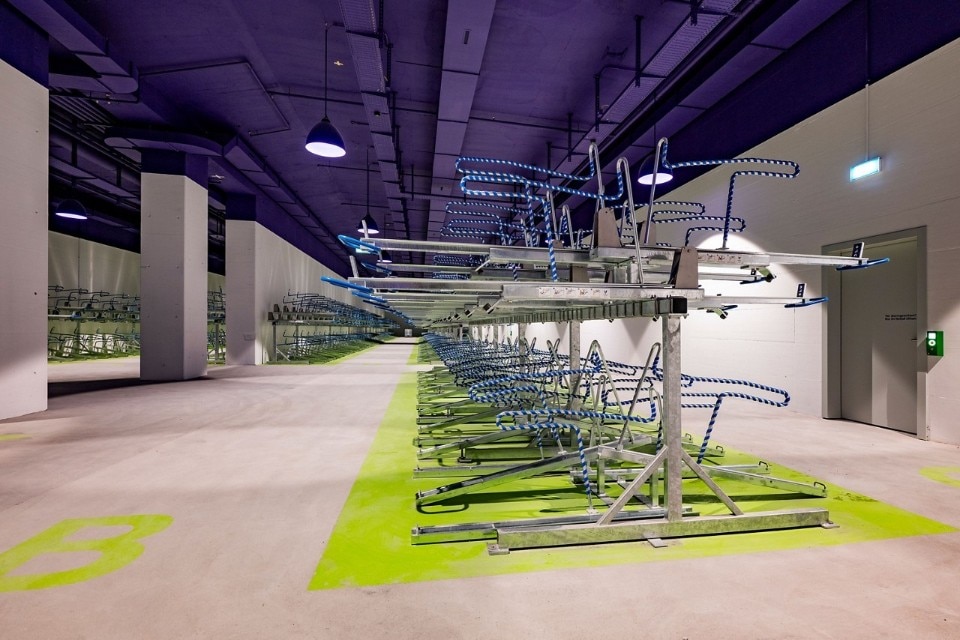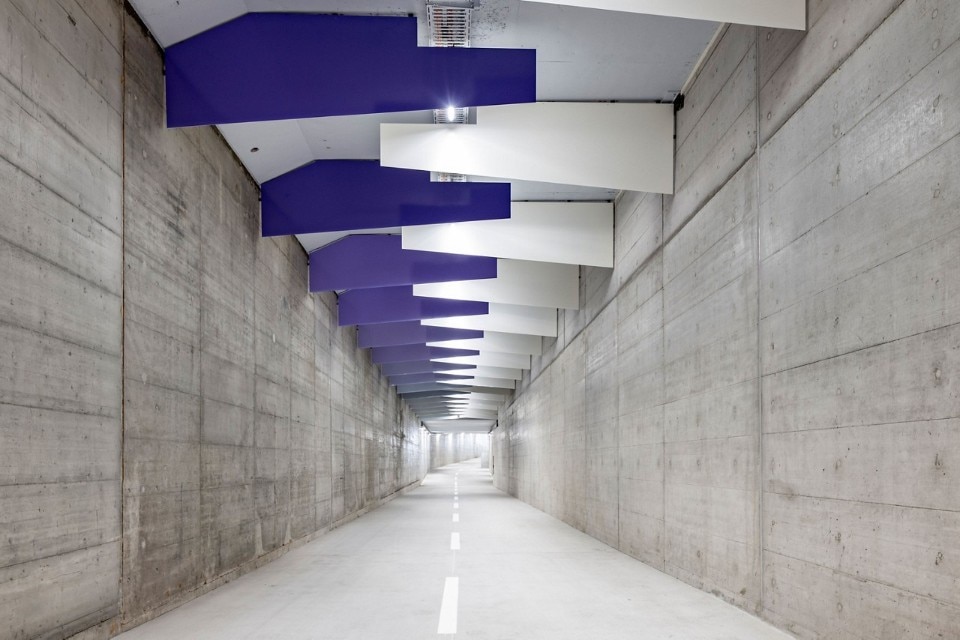On 22 May 2025, the City of Zurich officially opened the Stadttunnel, a 440-metre-long tunnel beneath the central station, dedicated exclusively to the transit of bicycles and light electric vehicles. The structure connects Kasernenstrasse to Sihlquai, joining districts 4 and 5, and represents a significant transformation of an infrastructure originally conceived in the 1980s for a future urban motorway that was never realised.
The tunnel, with a maximum width of six metres, is accessible to bicycles, e-bikes, S-Pedelecs, electric mopeds and small electric motorbikes – with a maximum permitted speed of 20 km/h – while remaining closed to pedestrians. In the centre of the route is a new velostation with 1,240 free spaces, including cargo bike spaces and e-bike charging points.

The project, costing 38.6 million Swiss francs, has been promoted by the association Pro Velo Zürich since 2011. After a decade of discussion and planning, in 2021 74 per cent of the population of Zurich approved the conversion of the tunnel into a cycle path by referendum.
The inauguration of the Stadttunnel took place during Cycle Week, with a bicycle parade attended by more than 1,200 people. According to the city authorities, the tunnel is a central element in the strategy to promote cycling in Zurich, providing a safe and weather-protected connection in the heart of the city. Zurich representatives have defined it "a historic moment for urban cycling"
The tunnel was designed by Huggenbergerfries architects, with a focus on lighting and signage to enhance the user experience. The velostation is accessible directly from the Sihlquai-Passage of the central station, although access has some architectural barriers, such as steep ramps and steps, which can be a difficulty for users with special bicycles or reduced mobility.
With the opening of the Stadttunnel, Zurich takes a significant step towards more sustainable urban mobility by converting an unused car infrastructure into a dedicated soft mobility service.


